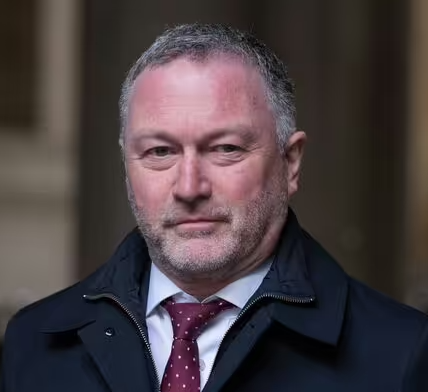Residents in the Labour-run town may turn to Reform UK as concerns grow over soaring migration figures.

Residents in Caerphilly, South Wales are concerned about rising illegal migration (Image: Getty)
Local residents in the Labour-run town in Wales may turn to Reform UK due to the soaring illegal and legal migration figures. Fury is growing in the South Wales town of Caerphilly which has been represented by Labour politicians since 1918, as an influx of migrants making the perilous Channel crossing places local resources under pressure. One concerned resident fumed that those entering Britain via a dinghy from France “is actually breaking the law instantly”.
Dedus Anstee-Coles said: “Therefore, their legal status demands that that person should not be allowed in this country. What has changed?”
Speaking to GB News, local Lynn Morgan added: “It is an issue, really, because you think, well, when is it going to stop? People can’t get doctors appointments and dentists, and this, that and the other. We don’t have the infrastructure, really, to take any more in.”

More than 180,000 illegal migrants have crossed the Channel since 2018 (Image: Getty)
The migrant population of Caerphilly stood at 2.9% in the latest Government census, which is the lowest foreign-born figure across all of the boroughs in Wales. However, the number of Welsh-born residents has dropped by 1.3% since the previous census in 2011.
Reform UK candidate Llyr Powell told the news channel that “immigration has been a big issue for a number of years”.
“The Conservatives said they would get to grips with it; failed,” he said.
“Keir Starmer said at the last General Election he would come to grips with it, and he is proving to be a failure on it. The only person who has been consistent on migration is Nigel Farage, and the people trust him on migration.”
Speaking on the low number of foreign-born workers in Caerphilly, Mr Powell dismissed claims that immigration is not an issue for the Labour town.
He said: “It’s a real issue in Wales because we do have pressure on our public services, we do have young people who want to be trained in better jobs but the way in which the Welsh Government has been dealing with job shortages isn’t by training young people, it’s been by importing labour.”
While some locals express concern over the rising migration figures, other residents in Caerphilly expressed sympathy.
Philip Davies said: “If I wanted a job and I couldn’t get the money, I’d move, I’d be exactly like the immigrants coming here. They get a better standard of living coming here, you can’t blame them.”


